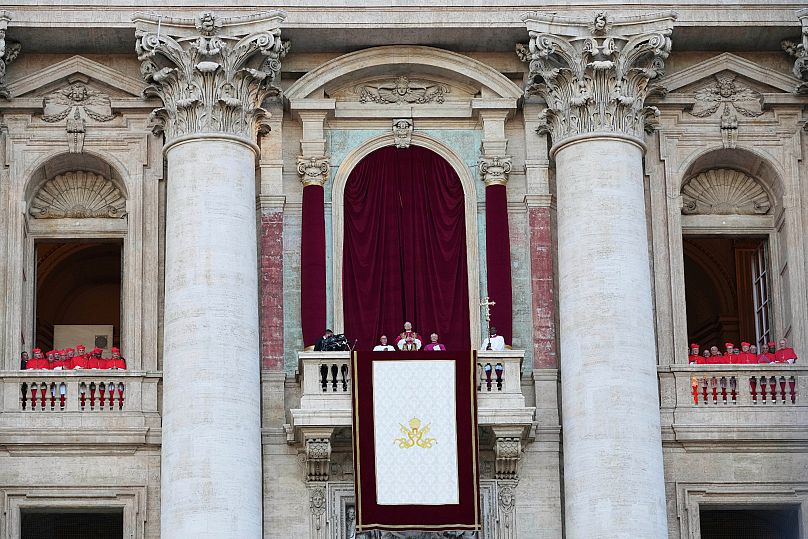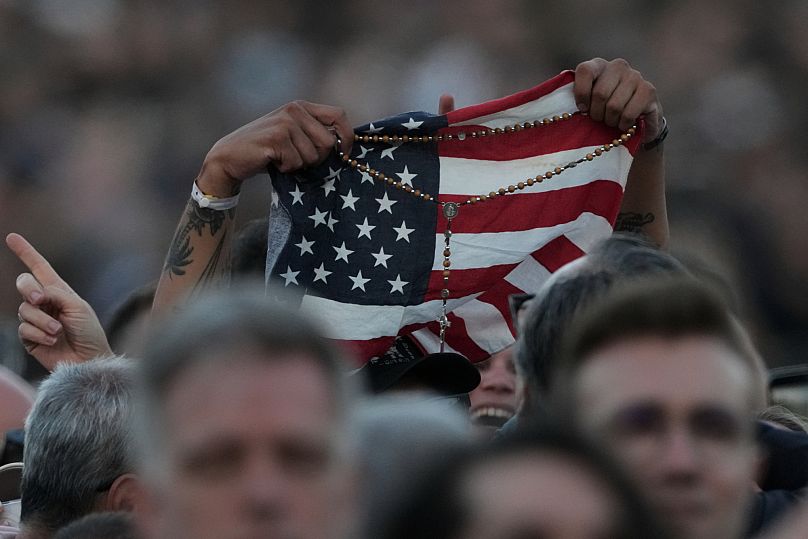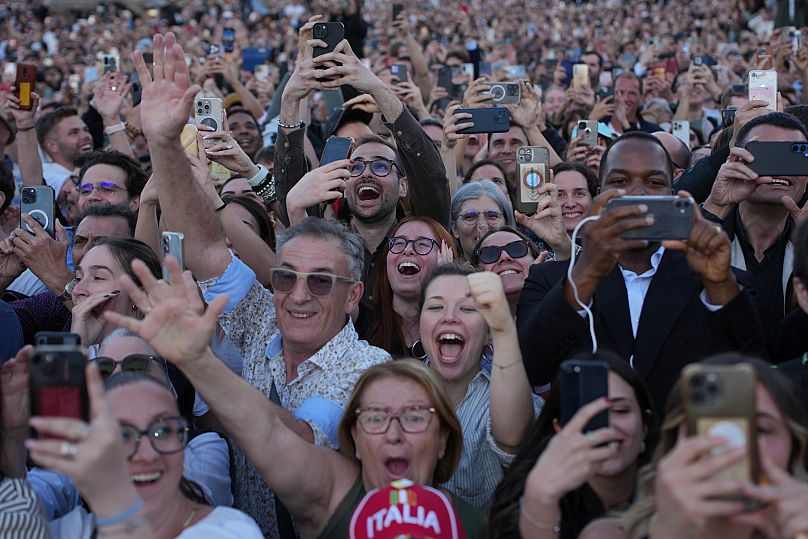The new pope has been chosen.
In the first vote of the afternoon on the second day of the conclave at around 6 pm, white smoke billowed out of the Vatican chimney to thunderous applause, signalling that a majority of cardinal electors had reached a decision.
Just over an hour later, the new pope was presented to the world: Cardinal Robert Prevost, who had chosen the papal name Leo XIV.
"Peace be with you all," were his first words to more than 100,000 faithful who had gathered in St Peter's Square.
"I hope this greeting of peace enters your hearts, reaches your families, every person, wherever they are," he said.

He also paid tribute to his predecessor, recalling "the gentle yet always courageous voice of Pope Francis as he blessed Rome," and expressed his thanks to his predecessor.
Pope Francis died at the age of 88 on 21 April.
Pope Leo XIV also deeply reflected on his spiritual roots and pastoral vision: "I am a son of Saint Augustine, an Augustinian."
"With you I am a Christian, for you I am a bishop. In that spirit, we can all walk together toward the homeland God has prepared for us."
What do we know about Pope Leo XIV?
Robert Prevost was brought to the Vatican by Pope Francis in 2023 to serve as the powerful head of the office that vets bishop nominations from around the world, one of the most important jobs in the Catholic Church.
As a result, he had a prominence going into the conclave that few other cardinals had.
Prior to the conclave, one strike against him was that there had long been a taboo against a US pope, given the geopolitical power already wielded by the United States in the secular sphere.
But Prevost, 69, a Chicago native, is also a Peruvian citizen after living in Peru for years, first as a missionary and then as an archbishop.
Prevost was also twice elected general, or top leader, of the Augustinian religious order founded by St Augustine in the 13th century.

Pope Francis clearly had an eye on him for years, moving him from the Augustinian leadership back to Peru in 2014 to serve as the administrator and later archbishop of Chiclayo.
He remained in that position, acquiring Peruvian citizenship in 2015, until Pope Francis brought him to Rome in 2023 to assume the presidency of the Pontifical Commission for Latin America.
In that job, he would have kept in regular contact with the Catholic hierarchy in the part of the world that still counts the most Catholics.
Ever since he arrived in Rome, Prevost has kept a low public profile, but he is well known to the men who count.
Significantly, he presided over one of Pope Francis's most revolutionary reforms: adding three women to the voting bloc that decides which bishop nominations to forward to the pope.
Where does he stand on key issues?
Prevost is the first US-born priest to hold the position of head of the Roman Catholic Church. In the run-up to the conclave, he was not considered a frontrunner to be elected pontiff.
Prevost is known for his moderate and pastoral approach and for aligning with many of the positions held by his predecessor, Pope Francis, but there are differences.
Prior to his election as pontiff, Prevost didn’t have a particularly extensive record of speaking about LGBTQ+ issues. However, the New York Times reported that in 2012, he had been critical of media that showed "sympathy for beliefs and practices that are at odds with the gospel," including what he called the "homosexual lifestyle."
Those remarks are in contrast with his predecessor Pope Francis' more inclusive outreach to the LGBTQ+ community.

In 2023, the late pontiff criticised laws that criminalise homosexuality as "unjust," saying God loves all his children just as they are and called on Catholic bishops who support the laws to welcome LGBTQ+ people into the church.
"Being homosexual isn't a crime," he said in an interview.
His stance on the climate crisis is more in tune with Pope Francis', with Pope Leo XIV frequently expressing concern about environmental challenges and emphasising the importance of action to address global issues.
He recently said the church should move "from words to action," and warned against the "harmful" consequences of unchecked technological development.
While Pope Leo XIV is regarded as a centrist and widely considered a progressive on some issues, he is viewed as conservative regarding church doctrine.
He opposes ordaining women as deacons and has consistently spoken out against abortion, calling it "a form of murder".







